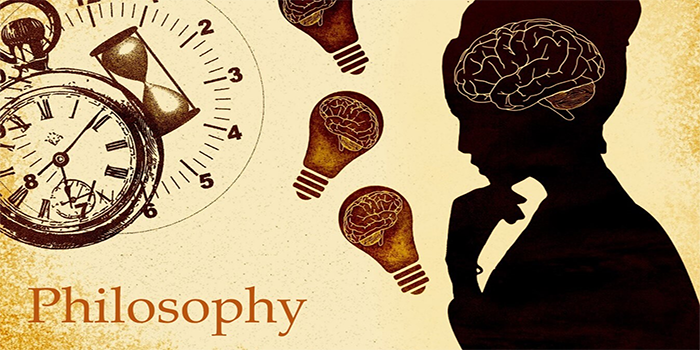
Philosophy is the study of general and fundamental questions about existence, knowledge, values, reason, mind, and language. Such questions are often posed as problems to be studied or resolved. The term was probably coined by Pythagoras (c. 570 – c. 495 BCE).
Philosophy is an activity people undertake when they seek to understand fundamental truths about themselves, the world in which they live, and their relationships to the world and to each other. It often involves making implicit assumptions and using reason and logic to draw conclusions.
Philosophers often use critical thinking to analyze, evaluate, and synthesize ideas. Philosophy is not just an academic pursuit, but it is also a way of life. It encourages us to think more deeply about the world around us, to question our beliefs and assumptions, and to examine our values and commitments. It encourages us to think more carefully and reflectively about the choices we make in our lives.
Philosophers strive to understand the world and all that is in it more thoroughly and to apply their insights and understanding to their own lives.
Importance of Philosophy
Philosophy is an important part of life because it helps individuals to think critically, form reasoned arguments and make informed decisions. It also encourages people to ask questions, challenge assumptions, and utilize logic to explore and understand the world around them. Moreover, philosophy serves as a powerful tool for understanding and engaging with complex issues, such as politics, morality, and the natural world. Finally, philosophy fosters creativity and encourages individuals to think outside of the box, explore new ideas, and come up with innovative solutions to everyday problems.
Purpose of Philosophy
Philosophy is a discipline that focuses on the study of fundamental questions, such as the nature of reality, knowledge, morality, and the purpose of life. Philosophy attempts to answer these questions using logical reasoning, arguments, and critical thinking. It is a way of exploring life‘s most complex and important issues, and provides a framework for making decisions and understanding the world around us. As such, philosophy is an invaluable tool for developing our understanding of the world and ourselves.
How To Find Tution and Teacher For Philosophy
1. Ask your friends and family for advice. Often, those closest to you have the best advice when it comes to finding a tutor or teacher for a specific subject.
2. Search online for tutoring services in your area. You can usually find reviews and ratings to help you decide on the best tutor or teacher for your needs.
3. Ask your local library if they offer any tutoring services or classes. Many libraries offer tutoring or classes on a variety of topics, including philosophy.
4. Contact your local college or university and ask if they offer any philosophy classes or tutoring services. Generally, universities will have a wide variety of classes and tutoring services for students.
5. Check with your school district to see if there are any philosophy classes or tutoring services available. Many districts have classes and tutoring services available for students.
6. Look for online tutoring services that specialize in philosophy. Many online tutoring services offer courses and tutoring for a variety of subjects.
Point That Cover in Philosophy
1. Ethics: The study of moral principles and values, such as the distinction between right and wrong or good and bad.
2. Metaphysics: The study of the fundamental nature of reality, including the relationship between mind and matter, substance and attribute, fact and value.
3. Epistemology: The study of knowledge and justified belief, including the nature and scope of knowledge and the means of acquiring it.
4. Logic: The study of the principles of valid reasoning, including the structure and validity of arguments.
5. Aesthetics: The study of beauty and the expression of taste, including the principles of art criticism and the philosophy of art.
6. Political Philosophy: The study of the fundamental questions of justice, freedom, and the legitimacy of authority.
7. Philosophy of Science: The study of the foundations, methods, and implications of scientific knowledge.
8. Philosophy of Religion: The study of the nature and scope of religious belief, including its beliefs, practices, and institutions.






